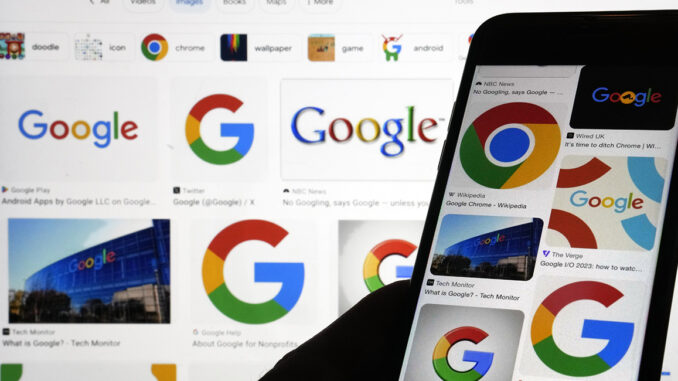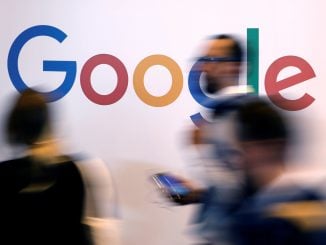
WASHINGTON, D.C. — A judge on Monday ruled that Google’s ubiquitous search engine has been illegally exploiting its dominance to squash competition and stifle innovation. The decision could shake up the internet and hobble one of the world’s best-known companies.
The highly anticipated decision issued by U.S. District Judge Amit Mehta comes nearly a year after the start of a trial pitting the U.S. Justice Department against Google in the country’s biggest antitrust showdown in a quarter century.
After reviewing reams of evidence, including testimony from top executives at Google, Microsoft and Apple, during last year’s 10-week trial, Mehta issued his potentially market-shifting decision three months after the two sides presented their closing arguments in early May.
“After carefully considering and weighing the witness testimony and evidence, the court reaches the following conclusion: Google is a monopolist, and it has acted as one to maintain its monopoly,” Mehta wrote in his 277-page ruling. He said Google’s dominance in the search market is evidence of its monopoly.
The ruling said Google “enjoys an 89.2% share of the market for general search services, which increases to 94.9% on mobile devices.”
It represents a significant setback for Google and its parent, Alphabet Inc., which had steadfastly argued that its popularity stemmed from consumers’ overwhelming desire to use a search engine so good at what it does that it has become synonymous with looking things up online. According to a recent study released by the investment firm BOND, Google’s search engine currently processes an estimated 8.5 billion queries per day worldwide, nearly doubling its daily volume from 12 years ago.
For now, the decision vindicates antitrust regulators at the Justice Department, which filed its lawsuit nearly four years ago. “This victory against Google is a historic win for the American people,” said Attorney General Merrick Garland. No company is above the law, no matter how large or influential.”
Mehta’s ruling focused on the billions of dollars Google spends yearly to install its search engine as the default option on new cell phones and tech gadgets. In 2021 alone, Google spent more than $26 billion to lock in those default agreements, Mehta said in his ruling.
Google ridiculed those allegations, noting that consumers have historically changed search engines when they become disillusioned with the results they were getting. For instance, Yahoo was the most popular search engine during the 1990s before Google came along.
Mehta said the evidence at trial showed the importance of the default settings. He noted that Microsoft’s Bing search engine has an 80% share of the search market on the Microsoft Edge browser. The judge said that other search engines could succeed if Google is not locked in as the predetermined default option.
Still, Mehta credited the quality of Google’s product as an important part of its dominance, saying that “Google is widely recognized as the best (general search engine) available in the United States.”
Mehta’s conclusion that Google has been running an illegal monopoly sets up another legal phase to determine what sorts of changes or penalties should be imposed to reverse the damage done and restore a more competitive landscape.
The potential outcome could result in a wide-ranging order requiring Google to dismantle some of the pillars of its internet empire or prevent it from paying to ensure its search engine automatically answers queries on the iPhone and other devices. Or the judge could conclude that only modest changes are required to level the playing field.
If there is a significant shakeup, it could turn out to be a coup for Microsoft, whose own power was undermined during the late 1990s when the Justice Department targeted the software maker in an antitrust lawsuit accusing it of abusing the dominance of its Windows operating system on personal computers to lock out competition.
That Microsoft case mirrored the one brought against Google in several ways, and now the result could also echo similarly. Just as Microsoft’s bruising antitrust battle created distractions and obstacles that opened up more opportunities for Google after its 1998 inception, the decision against Google could be a boon for Microsoft, which already has a market value of more than $3 trillion.
The Justice Department’s antitrust division has recently taken on some of the biggest companies in the world. It sued Apple in March and, in May, announced a sweeping lawsuit against Ticketmaster and its owner, Live Nation Entertainment. Antitrust enforcers have also opened investigations into the roles Microsoft, Nvidia and OpenAI have played in the artificial intelligence boom.



